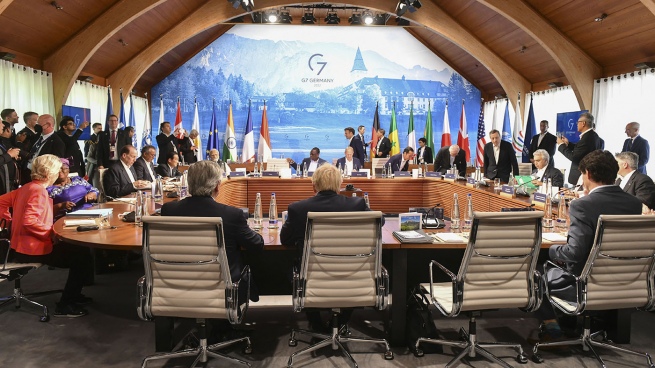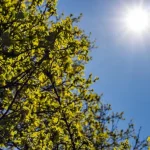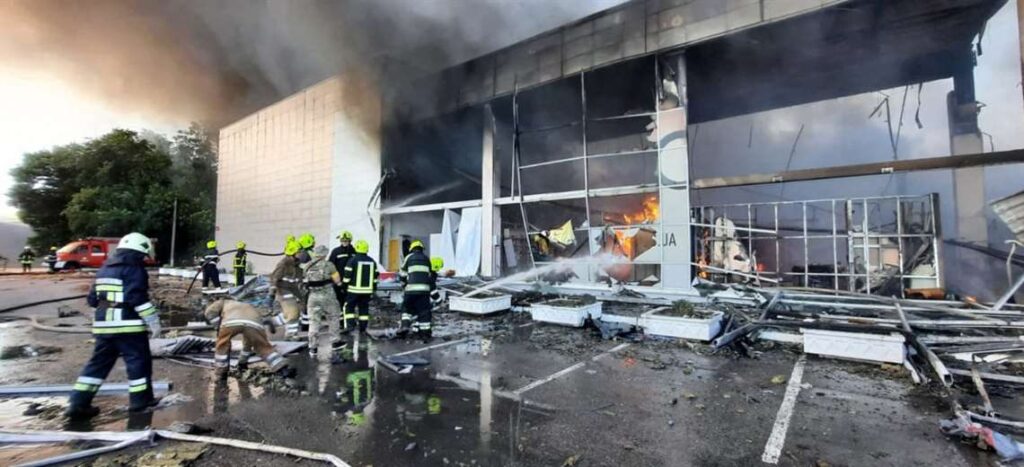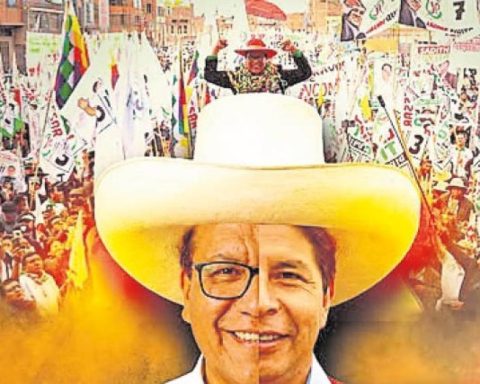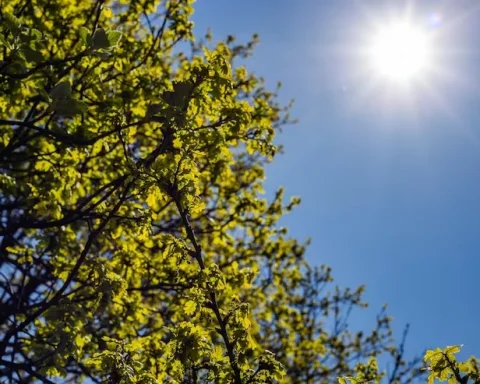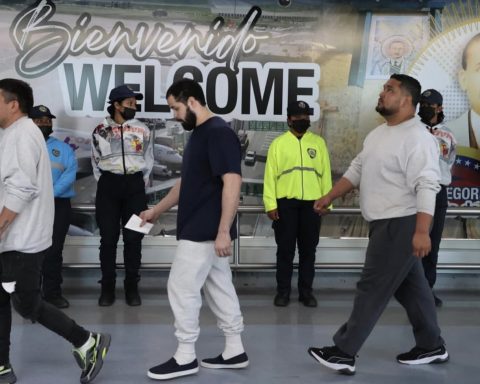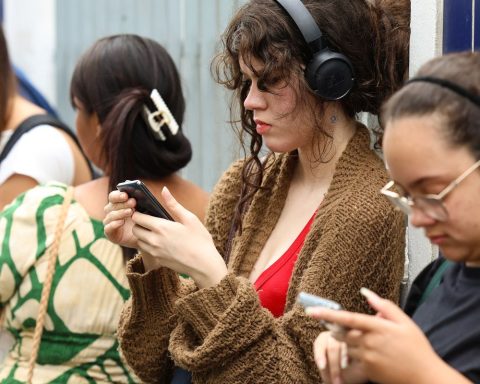The leaders of the seven largest economies (G7) culminated this Tuesday its annual summit with a promise to support Ukraine “as long as necessary” in the face of the Russian invasion and that they will study measures to limit the income from the sale of oil that the Kremlin obtains to finance the war.
In a final statement at the end of a three-day summit in Germany, the rulers of the Group of Seven (G7) highlighted their intention to make Russia pay “severe and immediate costs” through economic sanctions.
The statement did not elaborate on how limits on fossil fuel prices will be applied, but said the G7 will “explore” measures to ban Russian oil imports above certain levels in the coming weeks.
The United States says the ban on Russian crude will not only hit a vital source of income for Russia but also help ease rising fuel prices.which are affecting the world economy, as a result of the war in Ukraine.
“We remain steadfast in our commitment to our coordination around sanctions for as long as it takes”
“We remain steadfast in our commitment to our coordination around sanctions for as long as it takes, acting in unison at every step,” said US President Joe Biden and the leaders of Germany, the UK, France, Italy, Japan and Canada in the statement.
The seven heads of state and government they also agreed to a ban on imports of Russian gold and they said that they will help the countries affected by the blockade of millions of tons of grains that due to the war cannot leave the Ukrainian ports of the Black Sea.
US officials said fuel price caps would, in theory, work by preventing services such as the use of tankers or insurance companies above a certain value of oil cargo.
The system should be viable as most providers of these services are located in the European Union (EU) and the United Kingdom, thus falling within the scope of the sanctions.
To be effective, however, it should cover as many energy-consuming countries as possible, particularly India, where many refiners have been taking advantage to buy cheap oil from Russia shunned by Western sellers due to fears of sanctions.
About Russian slavery in Ukraine
Last monday, G7 leaders promised to help Ukraine “as long as necessary”, after a telematic intervention by the president of Ukraine, Volodimir Zelenski, who asked them to maintain pressure on Russia.
Also the day before, the group’s rulers condemned what they described as an “abominable” Russian bombing of a shopping mall in the central Ukrainian city of Kremenchuk that left at least 18 dead. Russia said that the mall was closed and that it was used to store weapons.
The leaders, led by German Federal Chancellor Olaf Shcolz, who hosted the meeting, said it was a war crime and vowed that Russian President Vladimir Putin and all those responsible for the attack “will be held accountable.”

From the secluded Schloss Elmau hotel, a castle high in the Alps in Germany’s Bavaria region, the G7 leaders set off for Madrid, Spain, for a NATO summit that will also be devoted to the war in Ukraine and its aftermath.
All members of the G7 except Japan are members of NATO.but Japanese Prime Minister Fumio Kishida was invited to the Madrid summit.
Zelensky and British Prime Minister Boris Johnson have expressed concern in recent weeks about a certain “war fatigue” they see in the West due to the costs of a conflict that has soared energy and food prices around the world. world.
The G7 summit sought, precisely, to alleviate these fears and show unity of action and determination among the powers that have sanctioned Russia and that they supply weapons to Ukraine to sustain the conflict despite the great military advantage that the Russian Army has gained.
The Kremlin’s response
Russia has said that continuing to deliver arms to Ukraine and adopting economic sanctions against it will not change the course of the conflict and will only aggravate the global crisis. The Kremlin has called on Ukraine to “accept the reality” that it is losing the war and to negotiate.
Zelensky said last Monday that this was not the time to negotiate with Russia, which is carrying out a vast offensive in eastern Ukraine in a region that it seeks to conquer and of which it already controls most, which would give it a great advantage in the conversations.
The Ukrainian president also urged the G7 leaders to do “the maximum possible” to end the conflict before the end of this year.
In response, Putin’s spokesman said on Tuesday that Russia assured that its offensive in Ukraine will stop when the Ukrainian government and army surrender.reported the AFP news agency.
“The Ukrainian side can end (the conflict) today. Nationalist units must be ordered to lay down their arms, Ukrainian soldiers must be ordered to lay down their arms, and all the conditions set by Russia must be applied. Then it will all be over in one day,” Dmitri Peskov told reporters in Moscow.

Global warming on the agenda
Outside of the war in Ukraine, the G7 leaders also agreed create a “climate club” by the end of this year to allow countries that so wish to coordinate and accelerate efforts to tackle global warming, they said in the summit’s final joint statement.
The club will be an intergovernmental forum with high ambitions, the G7 said.
“We invite all our partners, especially major emitters, G20 members and other developing and emerging economies to intensify discussions and consultations with us,” the statement added.
The countries that make up the club will try to harmonize their measures in such a way that they are comparable and avoid mutually imposing tariffs on their imports related to climate care.
At a press conference at the end of the summit, Scholz said that the initiative seeks to “ensure that protecting the climate is a competitive advantage, not a disadvantage.”
